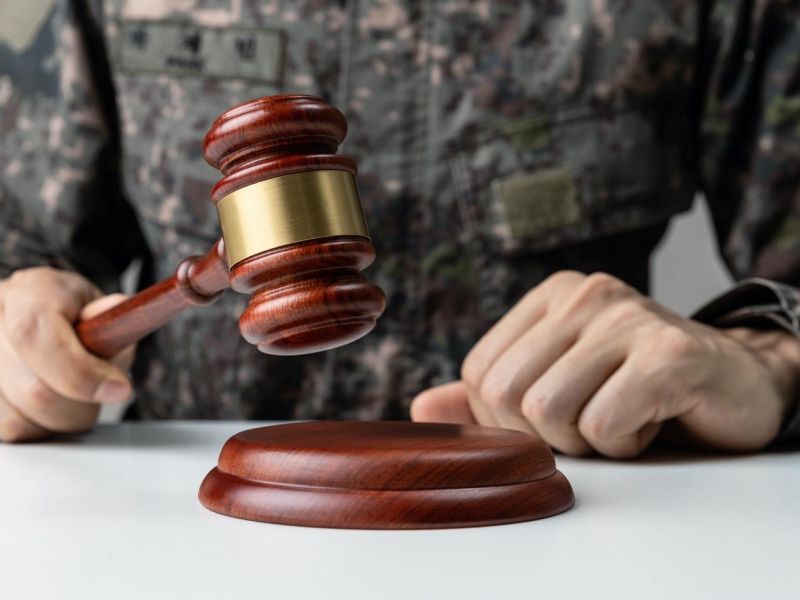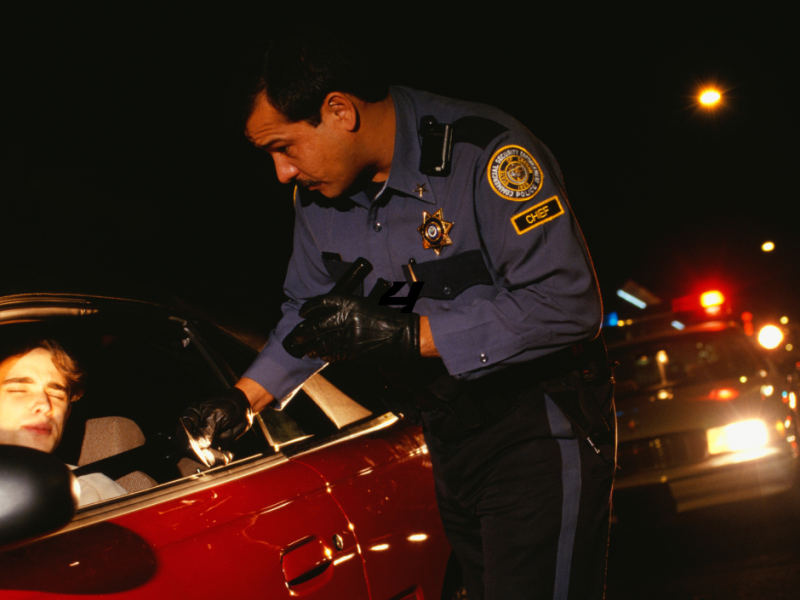
— Military
Understanding Armed Forces Traffic Tickets Common Offenses and Consequences
Have a traffic ticket and need to take driver improvement?
Take a look at our DMV-approved driving course.
Receiving a traffic ticket is always frustrating, whether you are a civilian or a service member of the military. However, individuals who serve in any branch of the military may have even more questions, largely due to the fact that they may not be able to find much readily accessible information on armed forces traffic tickets online. What are the possible consequences if a service member commits a traffic violation on duty vs. off duty? What if the infraction happens on a military base? Each of these scenarios should be considered individually, as everyone’s situation is unique. If you have received a traffic ticket as a service member of the military, you may want a trusted ally on your side. The attorneys at Driving Defense Law fiercely advocate for the brave and heroic men and women in every branch of the military. Call (757) 929-0335 to request a free case evaluation and discuss how an experienced Virginia traffic defense attorney may be able to help you.
Armed Forces Traffic Tickets on Military Bases
If a service member of the military is accused of committing a traffic violation on a military base, there are two kinds of traffic tickets they can get:
- United States District Court Violation (DD 1805). This traffic ticket is like a regular ticket an individual may receive anywhere else. DD 1805 tickets are issued by the military police but are enforced by the local government. The consequences are typically the same as those pertaining to a regular traffic ticket.
- Armed Forces Traffic Ticket (DD 1408). Armed forces traffic tickets are given to drivers of military vehicles or, less frequently, to drivers of non-military vehicles on active duty. DD 1408 may also be issued to dependents of someone on active duty, government-employed civilians, and government contractors.
In addition to the regular penalties associated with traffic tickets, tickets issued to military personnel may lead to adverse administrative actions from their chain of command. But does the military know when you get a ticket? That depends on whether the ticket was placed on the military blotter or not. If yes, the service member’s unit will most likely be notified of the ticket. Even if the unit is not notified of the ticket, the service member might need to disclose their infraction when obtaining renewal of a security clearance.
The Three Types of Traffic Offenses in Virginia
Under Virginia Code § 18.2-8, traffic offenses are broken down into three types:
- Infractions. In most cases, drivers in Virginia who commit traffic violations are ticketed for a traffic infraction. Common examples of infractions include speeding, failing to yield, running a red light, following too closely, and others. Traffic infractions typically result in fines and demerit points against the driver’s license. Drivers are not subject to imprisonment for traffic infractions at this level. While an infraction will appear on the driver’s driving record, it is not a criminal charge and thus does not show up on the criminal record.
- Misdemeanors. When a traffic offense is more serious than an infraction, a driver can face a misdemeanor criminal charge. Unlike infractions, misdemeanors can result in jail time. Examples of misdemeanors among traffic offenses are driving under the influence of a controlled substance (DUI), reckless driving, and driving on a suspended or revoked license. Since a misdemeanor is a criminal charge, it will show up on the driver’s criminal record.
- Felonies. Felony offenses are the most severe type of crime under the Virginia criminal law. The most common examples of a felony traffic violation in Virginia are a third DUI conviction and vehicular homicide. In extreme cases, reckless driving may be elevated to a felony. Drivers convicted of a felony can expect to serve time in a state correctional facility, while misdemeanors result in confinement in a county jail. Typically, felonies appear on the person’s criminal record for the rest of their life with no possibility of an expungement (unless the individual was found innocent or was never convicted).
Regardless of what type of offense you are facing for allegedly committing a traffic offense, you should take the situation very seriously, especially if you are serving in any branch of the United States military. Armed forces traffic tickets can lead to both criminal and administrative penalties, which means your freedom and your career could both be on the line. The attorneys at Driving Defense Law may be able to explain your options during a free case evaluation and discuss what an individual may be up against in their particular situation.
Traffic Offenses & Virginia’s Point System
Virginia uses the point system to track every driver’s traffic tickets and violations on the road. Each type of traffic offense has a set number of demerit points assigned to them. The length of time points remain on the driver’s record from the day of committing the offense depends on the severity of the defense and the number of points assigned. These points can add up quickly and lead to hefty fines and possible suspension of the driver’s license. Even after the points fall off, a violation that resulted in a criminal conviction can stay on the person’s criminal record for the rest of their life.
According to the Virginia Department of Motor Vehicles, traffic offenses in the state can result in three, four, or six points, depending on the severity of the violation. Some of the examples of these violations are:
- Three-point violations. Speeding up to 9 mph over the limit, impeding traffic, improper passing, improper turn, and driving with no license plate
- Four-point violations. Speeding 10 to 19 mph over the limit, passing when unsafe, following too closely, improper signal, failure to yield the right of way, and aggressive driving
- Six-point violations. Speeding 20 or more over the limit, reckless driving, driving under the influence of alcohol or drugs, manslaughter, driving on a suspended license, and failure to stop at the scene of a crash
In Virginia, adult drivers who accumulate 12 points within one year or 18 points within two years will face suspension of their driver’s license. However, some violations are so serious that the driver’s license may be suspended or revoked automatically regardless of how many points they have accumulated. Some examples of such violations are DUI and driving without a license.
Fight Armed Forces Traffic Tickets With Driving Defense Law
The attorneys at Driving Defense Law understand what is on the line when a military service member is accused of a traffic violation. An experienced Virginia traffic defense attorney will know how to fight against armed forces traffic tickets to protect a service member’s career, their freedom, their reputation, and everything they have worked so hard to achieve. Reach out today by calling (757) 929-0335 to book your free case evaluation and discuss your traffic defense needs

